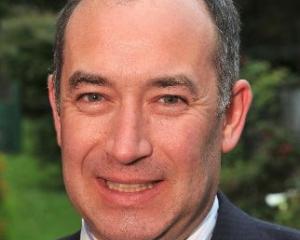Stop the Stadium's injunction in the High Court at Christchurch yesterday covered well-worn arguments over costs, capital, revenue and bridging loans.
Justice Lester Chisholm confirmed he would make his decision at 10am today.
His decision (which will be reported on www.odt.co.nz as soon as it is available) will either confirm the project, or initiate a new round of debate.
The group opposing the stadium had its day in court, in an attempt to stop the Dunedin City Council from signing a contract with Hawkins Construction to build the stadium before public consultation on this year's annual plan.
The council voted last week to approve the contract.
Much of the argument was about differences between stadium information in last year's annual plan, and this year's draft annual plan.
Justice Chisholm had only one day to take in some complex accounting sums, and a variety of views on the figures that came up in evidence.
Stop the Stadium gave its own calculation of the costs as counsel Len Andersen presented his case.
He said the matters in dispute included whether it was possible to proceed with the project on the basis of the council's annual plan, and the status of the private-sector funding, which was "an important issue".
The critical point at issue was whether aspects of the stadium plans had changed significantly. The council maintained they had not.
The plaintiff argued they had.
Mr Andersen asserted section 97 of the Local Government Act prohibited decisions that would "significantly" affect the cost to the local authority, if they were not in an annual plan.
The key points that were changed in the latest annual plan included the cost of $198 million, which previously was not to have exceeded $188 million, Mr Andersen said.
The $10 million expected from the Community Trust of Otago had dropped to $7 million, and a bridging loan was required for private-sector funding that would be "coming in over a number of years".
The increase to the total cost of the stadium was $28 million.
This was a $10 million increase in costs; $15 million for bridging finance, and the $3 million shortfall in Community Trust of Otago funding.
The Government had put in $15 million, but that left $13 million.
"The extra $13 million has to come from somewhere.
"This is not something that has been made absolutely clear in the draft annual plan."
Ratepayer input stayed the same, but that was dependent on lower interest rates, and revenue being sufficient to cover the bridging loan.
The council had a policy on what was significant, which stated it had to consider issues including the present and future implications on the city, financial costs and the effect on levels of service.
"The cost has gone up $13 million. This is significant."
He questioned how the $5 million a year the council claimed the loan repayments would cost could be that amount.
For $108 million at 6.3%, which Mr Stephens had said the interest rate would be, the cost, as he had calculated it, would be $6.8 million.
Council counsel Frazer Barton said the practical reality of a project like the stadium was there were going to be unavoidable changes as it evolved.
Throughout his evidence, he argued that while financial structures had changed, the impact on the council and ratepayers had not.
Audit New Zealand had already considered the stadium issue, had had no problems with the consultation process.
"The whole context here is political, that this is subject to a huge political debate, and when one notes the timing, from the original operative plan . . . there has been an election since then, I just want to make that point, your Honour."
Asked by Justice Chisholm about the $13 million shortfall Mr Andersen raised, Mr Barton said the project was $13 million down, but was $15 million up because of the recent government grant.
"There needs to be recognition it's a little bit of a moving feast."
Mr Barton explained the $108 million the venues company would borrow had to be seen in the context of issues of taxation and depreciation.
Justice Chisholm asked if it was a situation where it was better financially to borrow money, and Mr Barton said it was.
"Some $52 million has already been spent. The final deal was about to be signed on Monday," Mr Barton said.
It was a relevant matter that vast sums had already been spent, and there was an extremely tight time frame.
"If they are to have this building put up in time for the Rugby World Cup, it must proceed within these time limits."
Mr Andersen noted council finance and corporate support general manager Athol Stephens had stated in his affidavit to the court there had been a 2% reduction in interest rates on "the $108 million of debt in the venue companies", which he said was a higher level of debt than previously stated.






